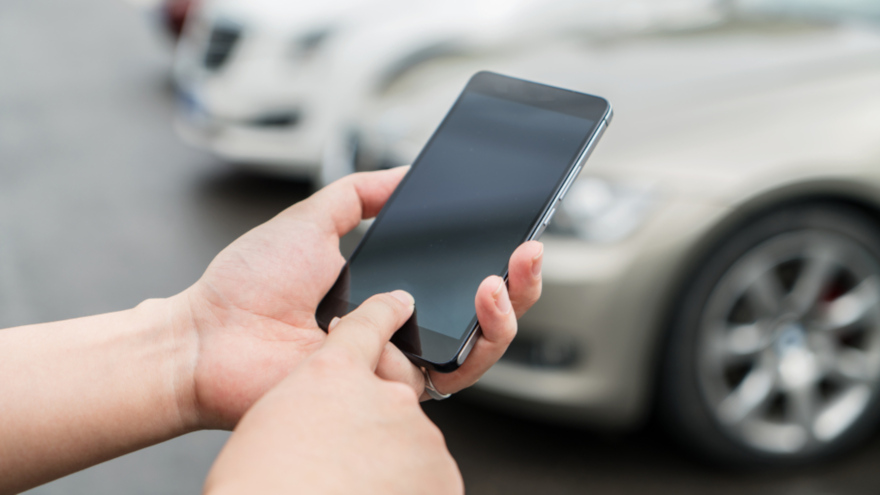Service department customers want less talk, more text

By subscribing, you agree to receive communications from Auto Remarketing and our partners in accordance with our Privacy Policy. We may share your information with select partners and sponsors who may contact you about their products and services. You may unsubscribe at any time.
COSTA MESA, Calif. –
Thirty-four percent of service department customers prefer to communicate via text message, but service departments only communicate that way 9 percent of the time. That is according to the J.D. Power 2019 Customer Service Index Study, released on Thursday.
The study shows that satisfaction scores usually increase when car dealership service departments use customers’ preferred methods of communication. But J.D. Power vice president, U.S. automotive retail practice Chris Sutton says service customers want the convenience of technology. Sutton sees no reason why more service departments don’t communicate by text.
“Dealers have easy access to these tools, so they don’t have to reinvent the wheel,” Sutton said in a news release. “Technology not only improves efficiency, but also the more satisfied a customer is with their overall service experience, the more likely they are to return to the dealership for service and to recommend the dealership to friends and family members. Customers now expect technology to enable more efficient interaction with businesses—and that includes dealers.”
For owners and lessees of 1- to 3-year-old vehicles, the study measures satisfaction with service at a franchised dealer or independent service facility for maintenance or repair work. It also ranks the highest-performing U.S. automotive brands, and that is based on the combined scores of different measures of the vehicle owner service experience. These measures are service quality, service initiation, service adviser, service facility and vehicle pick-up.
Satisfaction is 75 points higher (on a 1,000-point scale) among customers who have an all-digital experience compared with one that is all analog. Those customers want to use the internet and communicate with the dealer through text messages, rather than over the phone. If the service adviser uses a tablet, that only further increases satisfaction.
The survey is based on responses from 57,286 owners and lessees of 2016 to 2018 model-year vehicles. It was fielded from October through December 2018.
Subscribe to Auto Remarketing to stay informed and stay ahead.
By subscribing, you agree to receive communications from Auto Remarketing and our partners in accordance with our Privacy Policy. We may share your information with select partners and sponsors who may contact you about their products and services. You may unsubscribe at any time.
The study showed even more results proving customers’ preference for communicating through technology. All generations show a preference for internet scheduling rather than over the phone. That is a major shift since 2015, when the industry average preference for these two methods was 20 percent for the internet and 64 percent for the phone. This year, preferences are 28 percent for the Internet and 59 percent for the phone.
Gen Y customers have shifted their preference toward internet scheduling at a faster rate than Boomers. However, every generation except Pre-Boomers has increased its preference for internet scheduling and decreased its preference for phone scheduling during the past five years of the study. J.D. Power defines the generational groups as Pre-Boomers (born before 1946); Boomers (1946-1964); Gen X (1965-1976); Gen Y (1977-1994); and Gen Z (1995-2004).
Other key findings of the 2019 study:
—In-store engagement is important: The percentage of customers who feel their service adviser provides helpful advice is 70 points higher when the adviser was focused on them and their needs during the visit. Other factors boosting a customer’s view of the service adviser’s perceived helpfulness include informing customers about work performed on the vehicle, knowing the vehicle’s service history, keeping them informed of the vehicle’s status, letting them know when the vehicle will be ready before service begins and performing a vehicle walk-around.
—A large percentage of owners are also promoters: The 2018 study introduced Net Promoter Score, which measures customer loyalty and predicts business growth. The score continues to show that many owners are promoters of their vehicle, although the percentage decreases slightly as vehicles age. Customers are asked their likelihood of recommending their vehicle model and are grouped into either the detractor, passive or promoter categories. More than three-quarters of owners are promoters in year one of vehicle ownership; 75 percent are promoters in year two; and 73 percent are promoters in year three. However, when an owner’s vehicle is not fixed right the first time, Net Promoter Score drops about 50 points (on a 100-point scale).
—Independent facility satisfaction gaining ground: Overall satisfaction with services performed by independent facilities has improved 22 points since 2017, compared with a 17-point improvement by franchised dealers. Satisfaction with service quality at independent facilities has improved 23 points since 2017, compared with a 17-point improvement by franchised dealers.
Sutton says the key performance indicators of service are “an important area of opportunity for dealers.” Simple tasks such as completing service right the first time, returning settings to where they were when the customer brought the vehicle in for service and washing the vehicle can affect customers’ perception of service quality, he added.
The survey also showed the highest-ranking brands, and for the first time in the study’s 38-year history, Porsche ranked highest in dealer service satisfaction among luxury brands. Lexus ranks second, followed by Cadillac, Infiniti and Mercedes-Benz.
For the third consecutive year, Buick ranks highest in satisfaction with dealer service among mass market brands. MINI ranks second, followed by Mitsubishi, Chevrolet, GMC and Toyota.
Auto Remarketing recently hosted a free educational webinar with Podium that focused on the possibilities of text messaging at the dealership. The session titled, "7 Ways Text Messaging Will Boost Your Dealership’s Bottom Line," is available here or through the window at the top of the page.


